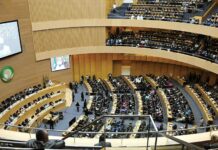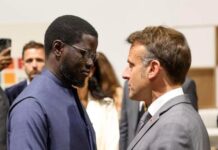
One of the things that causes me to experience a great deal of personal shame and disappoint is in the fact that I have very limited knowledge or understanding of my native language and culture. I am a Nigerian from Akwa Ibom state and a member of the Ibibio tribe; however, if I were to land in Akwa Ibom today, I would be no different from any other foreigner experiencing much of the language and culture for the first time. As I grew up abroad rather than in Nigeria (and rarely had any chances to visit home), I have never really had the opportunity to learn and experience much of my culture.
My experience of living abroad without fully connecting to my culture is not too different from that of many Africans who grew up outside the continent. The truth is that our languages and cultures are rarely things that can be fully experienced from a distance. Many of our indigenous languages are primarily oral rather than written, which makes learning them outside our communities especially difficult. The same applies to aspects of our culture (like food, traditions, and everyday practices) that thrive within our communities but are hard to replicate outside that environment.
As Africa’s economic realities continue to be ruinous due to the endemic corruption that exists within our governments, this trend of people emigrating away from our countries only exacerbates this trend of language and cultures failing to be passed on to the next generations. Immigrants are expected to adapt to the languages and traditions of their host countries, and in the process, many aspects of African identity are carried away but not always sustained, leaving them at risk of fading over time. This is just one of many ways African governments are failing our countries.
This loss of cultures is not exclusively a result of emigration; even within our own countries this gradual extinction of numerous African cultures takes place. As our governments have consolidated power in the hand of our national governments, this has often come at to the direct detriment to our traditions and cultures. African countries, at the end of the day, are the creations of colonial empires. When our borders were drawn up, they had been done without much care for cultural, religious or linguistic differences that exist between our different tribes.
Meaning, anytime a national identity is pushed by our governments, that will always be at the expense of our tribal identities, particularly that of minority tribes. One glaring example of this has been through our “national languages.” In most African countries, the national language is often English or French. Which has resulted in most people adopting their national language in order to work and live in our societies. However, that has also resulted in a serious lack of development of our indigenous languages.
Like any living thing, languages evolve and expand over time. Just as English developed to encompass a vast and sophisticated vocabulary, our indigenous languages could do the same, if only they were given the space to grow. Instead, English, French, and other colonial languages are often imposed on us, stifling the natural progression of our own tongues. A clear example of what is possible can be seen in Afrikaans, for example: it is an African language that has matured into a language capable of teaching science, mathematics, and many other fields.
Yet, this same opportunity has not been extended to most other African languages, leaving their potential for growth unrealized. What does it say about African governments when after independence, rather than there being a revival of our indigenous languages, we instead still have colonial languages being shoved down our throats? So much so, in a country like Cameroon, we would even see violence erupting between English-speaking Cameroonians and the French-speaking national government in the so-called “Anglophone Crisis.”
The dominance of English and French has also meant that our cultures are increasingly shaped by external influences rather than our own. In English-speaking countries especially, American culture inevitably takes centre stage, driven by its global reach in cinema, politics, and media. From the music we listen to and the films we watch, to the social media we use, the podcasts we follow, and even the way we engage with technology and science, American influence is everywhere, often overshadowing our own cultural expressions.
We typically find ourselves to be more familiar with American politics and culture than with those of our own countries. High-profile Americans achieve global fame, not just because of their achievements, but because of the sheer dominance of America’s media and cultural industries. The English language is central to this dominance, serving as the vehicle through which American influence spreads worldwide. As a result, African voices and media are too frequently drowned out by the constant stream of content from the United States. The truth is that language will always play a decisive role in shaping culture.
One other major way American culture has come to dominate our lives has even been through the way we dress. If you visit most urban areas across Africa, you would find that we do not dress too differently from any other place around the world. Many of us have abandoned our traditional attires in favour of more casual and formal wear that originate from America and the Western world more generally. Many of our traditional attires have become more like costumes we may put on for special occasions such as weddings or cultural festivals, rather than as everyday attire.
Moreover, African cities have become the epicentres of cultural dilution. More often than not, our urban centres are nearly indistinguishable from cities elsewhere in the world. There is little that one could point to as uniquely or inherently “African” in their design. Instead, we see the same glass high-rises, car-centric infrastructure, and government complexes, alongside parks, monuments, and museums that are often little more than replicas of structures found in other parts of the world, modified only slightly to fit the local context.
It is in our cities, whatever national language that exists is typically most reinforced. In order to find employment (especially any decent paying job) being able to speak our countries’ national language becomes most important. Only exacerbating the lack of development of our languages and fostering their gradual extinction.
Perhaps even more damaging to our cultures is the individualism that defines city life. The sense of community so central to traditional African living does not translate easily into urban environments. In smaller communities, it is natural to know your neighbour and to carry certain responsibilities toward one another. In cities, however, such bonds are rare. Many people don’t know their neighbours at all, and some even go out of their way to avoid interaction. In the process, the spirit of Ubuntu that once bound us together is lost in these urban settings.
We must ask ourselves whether we are truly satisfied with the status quo. Are we all content to watch our languages and cultures slowly wither away? Are we comfortable living in cities that feel like second-rate imitations of the developed world? And are we at peace speaking languages that are not our own, knowing that, no matter how fluent we become, our words will never be regarded with the same esteem as those of our former colonial rulers?
Would it not be better, instead, to embrace our own way of life? To build cities that reflect who we are, rather than mimic elsewhere? To speak proudly in our native tongues, rather than apologetically in foreign ones? Would it not be better for us to stand with dignity in our own identities, rather than chasing validation in borrowed cultures?
That is why I hold the ambition of returning to Akwa Ibom, to immerse myself more deeply in my own culture and to experience it firsthand. It is my goal to fully learn my native language, to preserve it, and to ensure it is passed down to future generations. But this should not be my ambition alone. It is something we should all strive for, because our languages and cultures are treasures that are worth preserving, they are our very own living legacies that deserve to endure.











